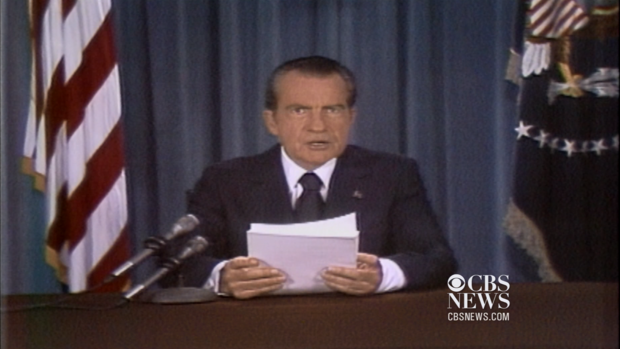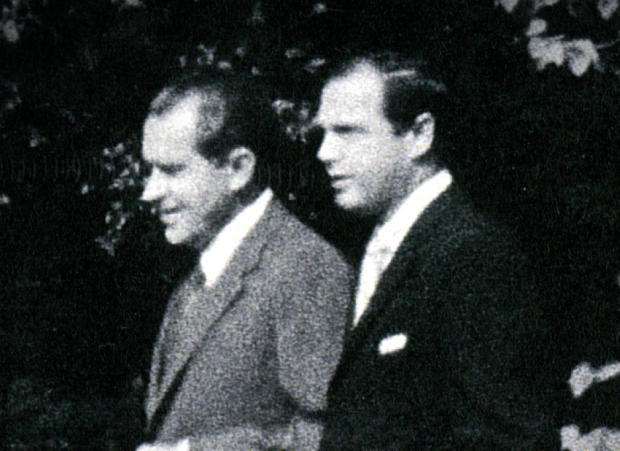April 29, 1974: Nixon announces release of Watergate tapes
April 29th, 1974 marked the beginning of the end of the Watergate saga, and President Richard Nixon's time in office.
"This is a Special Report from CBS News in Washington, where the President of the United States is about to address the nation," reported former "CBS Evening News" anchor Dan Rather.
The president was responding to the House Judiciary Committee's subpoena for additional Watergate tapes. He had agreed to release the tapes by April 30th.
"It was almost two years ago, in June 1972, that five men broke into the Democratic National Committee headquarters in Washington," Nixon told the nation. "It turned out that they were connected with my reelection committee, and the Watergate break-in became a major issue in the campaign."
Nixon continued, explaining that he had been told no one in the White House had been involved in the break-in. But many believed he was directly part of the plot to break in to Watergate, as well as the following cover-up, which led to a House investigation.
Between February of 1971 and July of 1973, Nixon had secretly recorded his conversations. During the Watergate investigation, one of his aides, Alexander Butterfield, revealed the existence of the taping system.
In March of 1974, Nixon turned over 19 tapes to the House committee. One month later, they issued a subpoena for 42 more.
Nixon released the transcripts of those additional tapes -- more than 1,200 pages -- but not the tapes themselves. The transcripts were edited by the president and his aides to remove "portions not relevant" to the Watergate investigation.
"They include all the relevant portions of all of the subpoenaed conversations that were recorded -- that is, all portions that relate to the question of what I knew about Watergate or the cover-up and what I did about it," Nixon said in his speech.
The House committee insisted the original tapes be turned over as well, but the president claimed his right to executive privilege allowed him to protect the recordings. However, in July of that same year, the Supreme Court ordered him to turn over any remaining tapes.
One of those tapes, often referred to as the "smoking gun," revealed Nixon ordering the FBI to end its Watergate investigation.
On August 8th, 1974, Nixon announced he would resign from the presidency, effective at noon the next day. He is the first and only U.S. president to resign from office.


